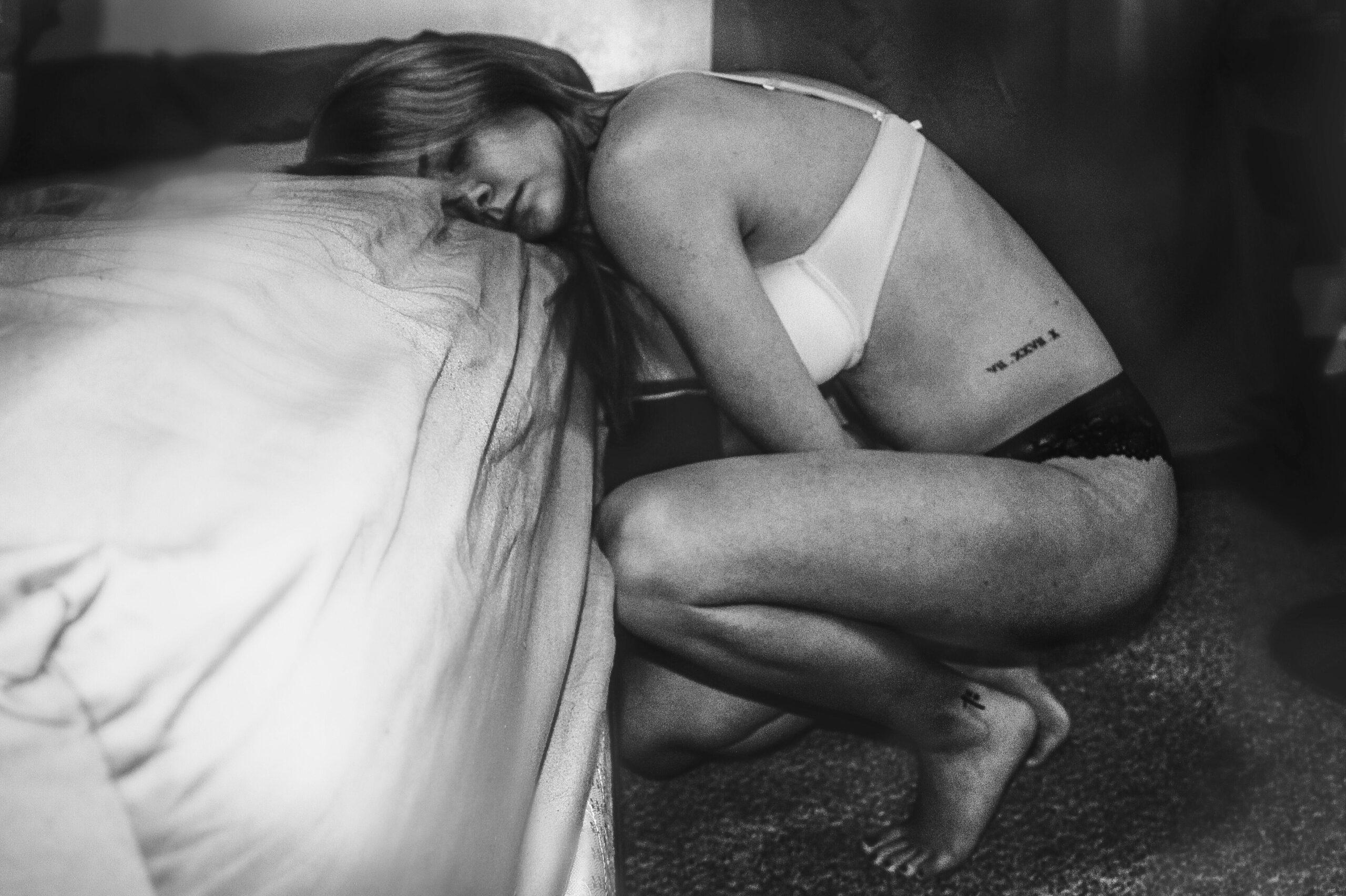Nobody wants to talk about periods.
But here we go.
I experienced one of my most painful years in 2022, and it was because I was fighting to get help for my period pain that was caused by tumors. This had already been going on for years, but it gradually had gotten so bad that it started affecting my ability to work and even occasionally to walk.
It wasn’t until my hysterectomy that I realized that the post-op pain of my hysterectomy was so much less painful than many of my periods.How is it even possible that I was prescribed strong painkillers for my post-op pain, but when I tried getting help for the period/uterus pain, I got answers like these from doctors:
- You are too hysterical, maybe if you just calm down, the pain will go down.
- You are too calm, maybe the pain isn’t as bad as you imagine.
- You are too young for a hysterectomy.
- Maybe you are imagining it.
- Periods don’t hurt.
We are so behind even in female health care and even doctors wanting to talk about period pain, that why would periods have to be part of the discussion at any business?
It doesn’t have to be hard. The period talk should be normalized.
32% of men find it unprofessional to talk about menstruation in the workplace. It’s 2023, and if you are not thinking about periods as part of employee well-being, it will affect your bottom line. I’m thinking about all of the times I’ve worked in pain worse than post-op pain after having an organ removed because “it’s just my period.” Work, decisions, strategies, execution. Meetings, deadlines, flights, and restaurant meals. In excruciating pain while pretending you are ok. But can you even imagine:Could we reschedule, I’m having my period?Even all of the period care product commercials tell us:
You can run, and ride a horse while on your period!They make it sound like fun. Periods are supposed to be painless. Even doctors say that. But research says that around 80% of women experience period pain at some stage in their lifetime. There is actually very little support. Luckily it’s getting better and there is a whole new feminine care industry to offer solutions. But medical care is still very behind. There is so much scientific research done for erectile dysfunction, so little for menstruation and for example for endometriosis. Periods are not enough spoken on the governmental level either. The longer we are silenced, the longer it will get for people to get help.
The financial impact of periods.
Period pain is one topic, but period poverty is another one. Did you know that periods and the lack of sanitary products are the reason why girls are undereducated in some countries? And you thought periods had nothing to do with national economics. In the USA, 25% of students who have periods, live in poverty. 4 in 5 have missed school because of periods. Free period products are currently offered in schools in the UK, New Zealand, Kenya, South Korea, and a few more countries. In the US, in some states: California, Connecticut, Delaware, Illinois, Hawaii, Maryland, New Hampshire, New York, Nevada, Oregon, Rhode Island, Tennessee, Utah, Vermont, Virginia, and Washington. In Finland, the city of Helsinki is testing it. If the rich privileged women can’t get help, the poor don’t have a chance. This is actually something I learned from UN Women representatives in an event that focused on periods. Menstrual leave is offered only in a small number of countries, among them Japan, Indonesia, and Zambia. Spain just got it approved as the first country in Europe.What a luxury it would be – not going to school or work while in excruciating pain.
Start talking.
How can you help? Thanks for reading this far. Raising awareness and talking about female health is important. Removing stigma from talking about periods is part of it, and normalizing it helps. Do your own research and see what your local government’s or city’s or company’s stands are on this. You can also pay attention to period care companies and what kind of social initiatives they are doing, so you support companies that fight for women’s health and are not only trying to profit from it. As a benchmark, check out how Lunette is taking period action. Oh by the way, when I woke up from my surgery, my operating doctor told me I had multiple tumors, some of them were in necrosis, meaning starting to die inside, and my uterus was almost six times larger than it should have.This was a much more difficult operation than we expected, and usually, these kinds of tumors are extremely painful when they go to necrosis. You must have been in a lot of pain, how ere you able to live with it?Yeah, exactly, that’s what I had been trying to tell doctors for years. I wasn’t really able to live with the pain, but I wasn’t given any options. Talk about periods, and don’t shame those who have period pain. I can almost guarantee that most likely even someone is faking during their period, they are not faking that it hurts – they are desperately trying to fake through the pain and make it look like it’s nothing because that’s what society expects us. Photo: Sydney Sims, Unsplash Resources
United Nations – High Commissioner for Human Rights statement on menstrual health
NY Times – Women Have Been Misled About Menopause
World Economic Forum – Female menstrual pain is still taboo
British Menopause Society – Period Pain

